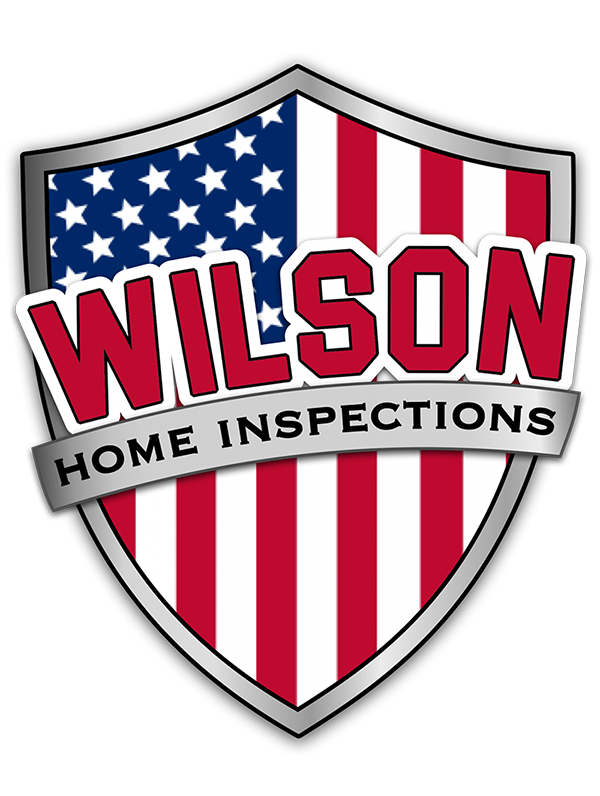This weeks blog post comes from our friend Christy Rakoczy at Lendedu.com. Christy is a personal finance and legal writer who’s work has been featured on CNN Money, MSN Money, Yahoo Finance, USA Today, and more. In her latest article, “How Much House Can I Afford?”. Christy provides great information for you to consider when deciding your home buying budget. She even talks about an area of home ownership that I see get overlooked daily. That is home maintenance! Budgeting for and performing maintenance on your home will help maintain your homes value over time. It makes my job easier as well. I hope you find this information as helpful as I did. Enjoy!
How Much House Can I Afford?
Whether you are a first-time home buyer or have experience owning real estate, buying a new house is an exciting endeavor.
However, a home is more than just a place to live — it is also an investment and a major financial commitment. So, before you buy, make sure that you know exactly how much you can afford.
It’s a good idea to take a close look at your finances and establish your housing budget before you start looking for homes. In fact, you shouldn’t even apply for pre-approval until you have a solid understanding of home affordability. Otherwise, you may be tempted to borrow as much as the bank will allow, putting a strain on your finances for decades to come.
This guide will help you ensure you’re making smart choices when it comes to the size of your mortgage loan.
On this page:
Upfront Costs to Consider
When trying to decide how much home you can afford to buy, the first thing to consider is the up-front costs you’ll need to pay.
Your Home Down Payment
The first — and largest — of these costs is your home down payment. Traditionally, mortgage lenders require a 20% down payment in order to grant you a mortgage loan.
So, to buy a $300,000 home, you’d need to pay $60,000 up front. Obviously, saving a substantial sum of money for a down payment can be a challenge, so the amount of money you have available for a down payment will impact how much house you can afford to purchase.
You May be Able to Pay Less Than 20%
While 20% is the recommended down payment, you don’t have to make a down payment this large. Many conventional mortgage lenders allow you to buy a home with as little as 10% down, and some mortgage lenders even permit you to make a down payment as low as 3%.
If you get a loan insured by the government, such as a VA or FHA loan, your down payment can also be very low. With an FHA loan, for example, you could make a down payment as low as 3.5%.
>> Read More: Best FHA Lenders
But Should You?
Just because you can buy a home with a low down payment doesn’t mean you should. If you buy a home with a low down payment, your interest rate on the loan will often be higher — and you’ll have to pay extra costs such as fees for private mortgage insurance to protect the lender in case you default.
If the value of your home fluctuates, you could also end up owing more than your home is worth, which is a precarious position to be in because you would not be able to sell your home for enough to pay off the loan if you need to move.
If you want to avoid these added costs and risks, then the amount of money you have saved will directly determine how much money you can afford to spend. For example, if you have only $20,000 saved, don’t try to buy more than a $100,000 home.
Real Estate Closing Costs
You also need money to cover closing costs. Closing costs are costs you have to pay when your home officially becomes yours. These costs can vary depending on where you live, but could include:
- Transfer taxes
- Mortgage origination fees
- The cost of a survey and home appraisal
- Home inspection fees
- Prepaid property taxes and homeowners association dues
- Homeowners insurance
- Title search costs
- Title insurance
- Attorney fees
- Prepaid mortgage interest
- Recording fees
In most cases, closing costs can add up to between 2% and 5% of the purchase price of the home. So, the amount you have saved for closing costs will also determine how much house you can afford.
Costs of Owning a Home Over Time
In addition to up-front costs, you also need to consider ongoing expenditures. Homeowners have many monthly costs they’ll incur, including their mortgage payment, property taxes, insurance, and homeowner’s association fees. These ongoing monthly expenses are referred to as PITI, and banks look at PITI to decide how much home you can afford.
When a bank decides how much you can afford, they specifically look at your debt-to-income ratio, which is your monthly debt payment (including PITI) divided by your gross monthly income.
If your debt-to-income ratio exceeds 43%, you probably won’t be approved for a loan because it will be considered unaffordable.
Experts also recommend that you keep your housing costs — not including other debts — to no more than 30% of your monthly income.
You also need to consider some other costs of homeownership as well, even though banks don’t look at them when assessing your debt-to-income ratio. This includes things like your utilities, home maintenance, lawn and home care, furniture, and home repairs.
Let’s take a close look at some of these monthly costs.
Monthly Mortgage Payments
Your mortgage payments will be the biggest monthly costs for your home. Your mortgage costs are determined based on the amount you borrow, the interest rate, and the length of your loan.
Most people choose either a 15-year or 30-year mortgage. The mortgage loan is structured to pay off the entire principal and interest over the loan term. If you’ve chosen a fixed-rate mortgage, your payment never changes. If you’ve chosen a variable-rate mortgage, your payment could rise or fall as interest rates change.
Thirty-year mortgages give you lower monthly payments than 15-year mortgages, although the interest rate is usually higher. That’s because you’re stretching out your repayment over such a long time period.
There are also other kinds of mortgage loans, such as interest-only loans or balloon loans. These are usually risky for borrowers, and you shouldn’t consider them in most cases.
Property Taxes and Insurance
Property taxes and insurance are also ongoing costs for homeowners. In many cases, these costs are added onto your mortgage payment. The mortgage lender collects money each month to pay for your insurance and property taxes and keeps it in an escrow account. It then pays your tax and insurance bill when it comes due.
If you don’t escrow your property taxes and insurance, you should save during the year to pay these costs. Often, they add thousands of dollars annually to your housing bill, although the costs of taxes and insurance can vary dramatically depending on where you live. Taxes and insurance both tend to be costlier on more expensive homes too.
Other Ongoing Expenses
Utilities, home maintenance costs, lawn care, furniture, and repairs are also expenses homeowners need to contend with. And, these costs are generally also higher with bigger and more expensive homes because you’ll have more space to fill, heat, and maintain.
You should start saving money each month when you’re a homeowner so you can afford the repairs and upkeep your home needs. While you may not incur big expenses every year, some repairs — such as a new roof — could cost tens of thousands of dollars, so it’s important to set aside money for these expenses long before they’re due.
Determining the Level of Homeownership That’s Right For You
While there are undeniably expenses associated with homeownership, buying a home also gives you the chance to build equity.
Will Your Home’s Value Likely Go Up?
Ideally, you’ll be able to sell your home for more than you paid for it and cash in that equity. Or, you can stay in your home for the rest of your life and one day have no housing payment. Because home equity is a valuable asset, homeowners generally tend to have a higher net worth than renters.
Can You Actually Afford It?
Buying an unaffordable home that is too expensive can cause you to compromise other financial goals — such as saving for retirement. And, it could put you at risk of foreclosure, which could be financially devastating.
This is especially true because homes aren’t very liquid assets. They can be hard to sell, so you could get into serious financial trouble if you can’t afford your payments and need to sell quickly, or if you don’t have enough money to pay for other financial obligations.
Play It Safe & Consider Your Other Obligations
To make sure homeownership is a good investment, it’s best to err on the side of caution and be conservative in your estimate of what you can afford.
Take into account all of your monthly debt obligations, such as credit card debt, student loans, and car payments, and deduct them from your annual income for as long as those debts will remain. Use that lower household income to determine a home price that makes sense for you.
If your total debt is too high to afford a decent house, work on paying down your debts before trying to buy. Not only will lowering your debt increase the price range you can afford when starting the home-buying process, but it may also improve your credit score, earning you more favorable rates on your home loan.
If your credit score isn’t great, you could also work to improve it before buying a house as saving even a few percentage points could have a huge impact on the total cost of your mortgage. You may be approved for a mortgage with a poor credit score, but putting in some work before applying is definitely worth it.
Bottom Line: Don’t Buy More Home Than You Can Afford
Ultimately, you need to look at the big picture and consider both ongoing and up-front costs when deciding if purchasing a home is right for you.
By carefully assessing how much you can spend, you can maximize the chances that your home will be a good long-term investment as well as a place where you can put down roots.

